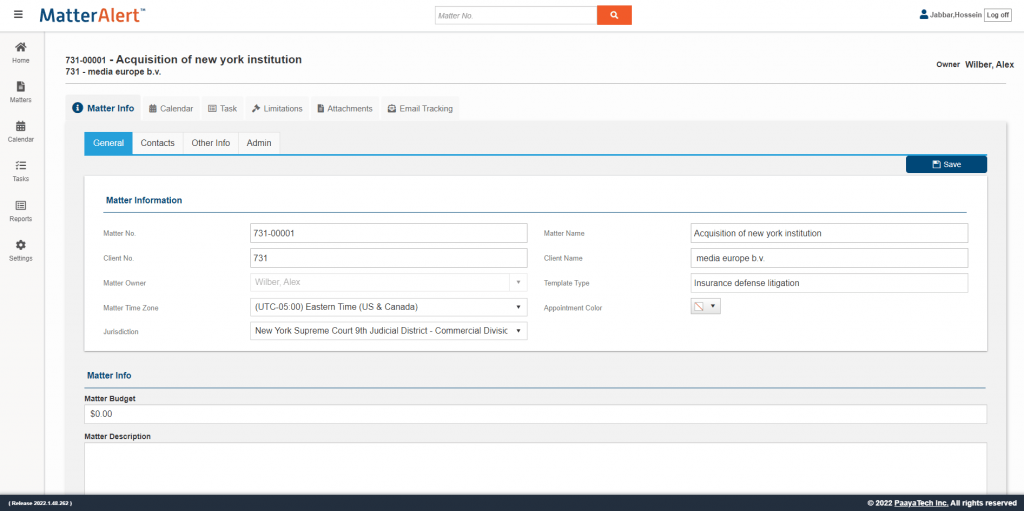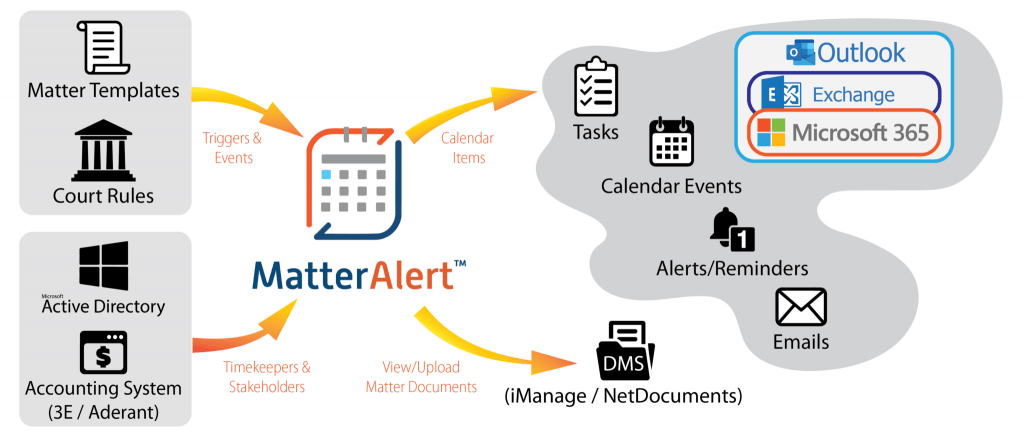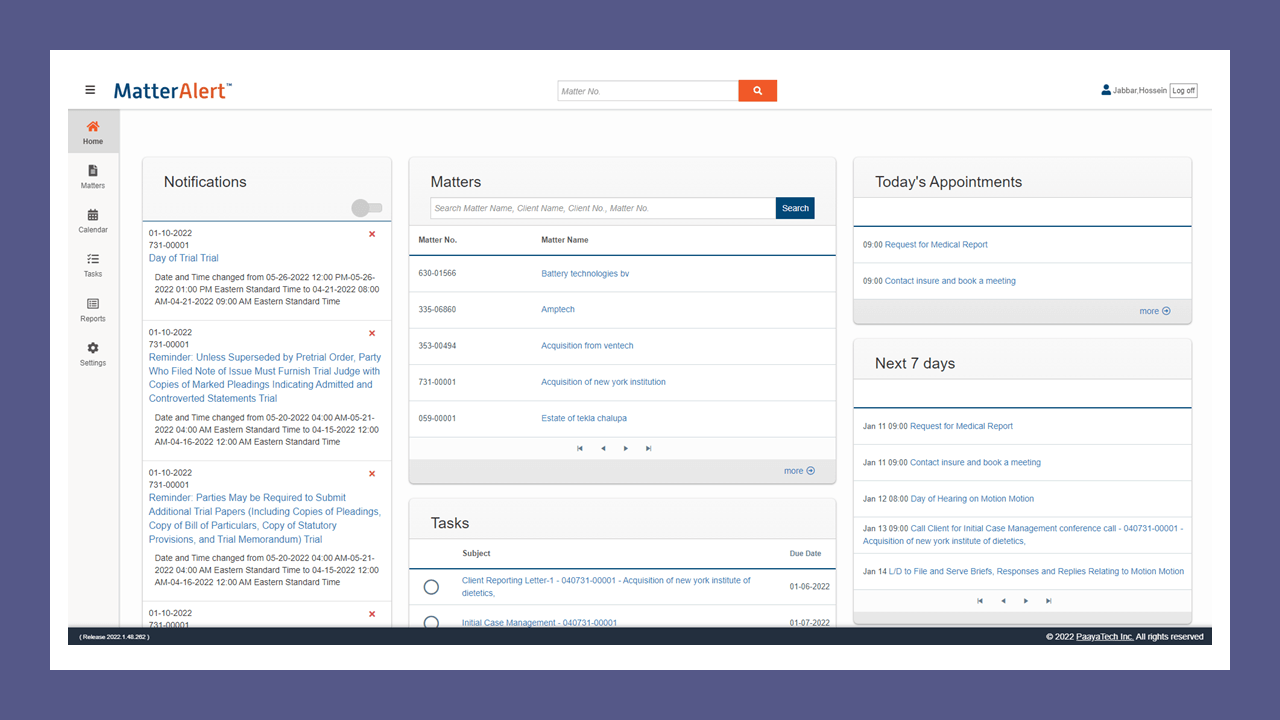A new legal software product unveiled today, MatterAlert, is a web-based, matter-centric docketing, tickler and calendar application designed to help law firms manage all matter-related dates, deadlines and other information in a single platform.
The product provides a matter dashboard to view all matter information in one place and matter templates to automate the creation of tasks and calendar events based on the type of matter. It integrates with CalendarRules to provide rules-based calendaring, with accounting systems such as Thomson Reuters 3E and Aderant, and with Office365 and Exchange.
The product has been developed by PaayaTech, a Toronto company that provides customized IT software applications for law firms and other industries. Its other products are CorpSync to sync client contact information across platforms and CorpIntake for intaking new business.
Centralizing Matter Data
In a demonstration of MatterAlert yesterday, PaayaTech CEO Hossein Jabbarzadeh said that it is designed to solve the problems that arise when law firms use Outlook and Excel to manage legal matters. Calculating dates is time consuming, there is no reporting, and there is no easy way to update events in bulk when a lawyer leaves and another takes over a matter.
MatterAlert addresses those issues by pulling in data from multiple locations and centralizing it in a dashboard. In addition to pulling in court dates from CalendarRules, it can pull in timekeeper and account data from accounting systems — automatically or manually — and documents from document management systems such as iManage and NetDocuments.
It also integrates with Outlook, pushing all dates, events and tasks to Outlook calendars.
If someone leaves or joins the firm, all appointments and tasks can be updated in bulk with the assignments to the new timekeeper.

MatterAlert allows firms to create matter templates for different types of matters, either for their own internal purposes or to meet specific client requirements. These templates can automate the creation of tasks and events at the start of a matter and and can include triggers to add tasks during the life of matter. Templates can also include fields to define the information that should be collected for a matter.
With the court rules integration, critical court dates are calculated and automatically set up in the platform when a new matter is created. If a court updates its rules, calendar events are automatically updated.
Almost all aspects of the software are customizable and configurable to a law firm’s specific needs.
“Attorneys and legal support staff are often working on 20 or 30 matters at a time, each with hundreds of tasks and due dates, so there’s great risk for missing a client-, court- or agency-enforced deadline, especially if a date or task changes during the course of the matter,” Jabbarzadeh said.
“MatterAlert amalgamates information from multiple sources into one centralized platform and automatically updates all tasks and due dates the moment they are entered or changed, saving law firms between $10,000 and $12,000 per year per timekeeper and at the same time reducing the risk of missing those critical dates,” he said.

Because MatterAlert is web-based, deployment is easy. It is built on a SQL database and can be run in the cloud or on premises via a virtual server.
Among other useful features:
- Task escalation. A specific type of timekeeper, such as the matter attorney, can be defined in the matter template so that they are notified when important tasks are due and not marked as completed.
- Distribution lists. Tasks and events can be assigned to a distribution list instead of just an individual.
- Assistant friendly. An assistant can be approved to manage not just their own personal calendar, but also those of the attorneys with whom they work.
- External attendees. External contacts can be included as event attendees.
“MatterAlert helps law firms increase productivity on every matter that has a specific schedule of dates and tasks, whether the schedule is driven by the court system, the type of matter or the client,” Jabbarzadeh said. “By utilizing MatterAlert, law firms have an opportunity to improve client satisfaction and lower risk by never missing an important deadline.”
 Robert Ambrogi Blog
Robert Ambrogi Blog